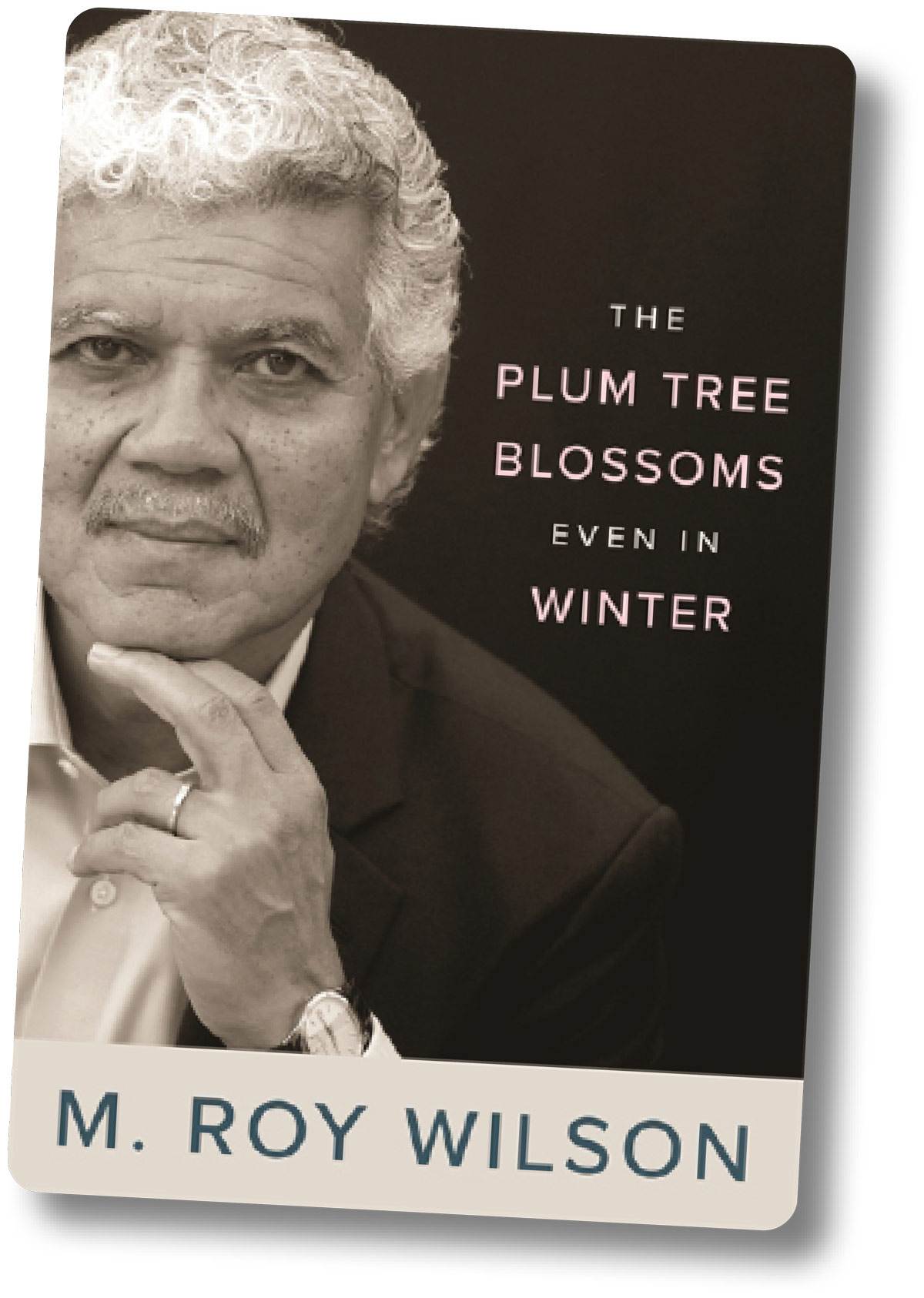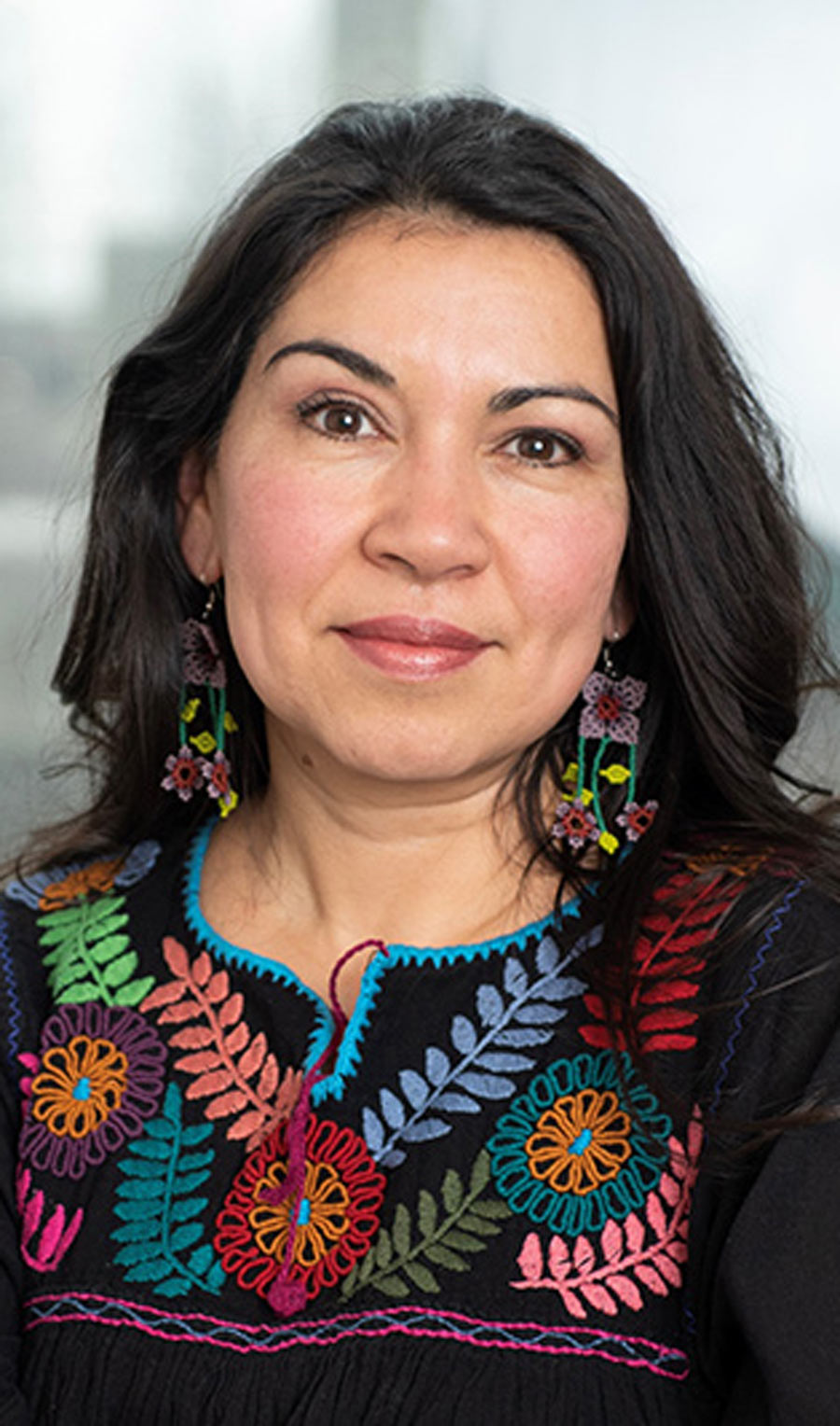news briefs

President Wilson celebrates release of memoir
Wayne State University President M. Roy Wilson’s memoir, The Plum Tree Blossoms Even in Winter, was released earlier this year, earning both critical and commercial favor. The president celebrated with a meet-and-greet and book signing at the WSU Bookstore.
Wilson always wanted to write a memoir because he knew he had an unusual story to tell, but he planned to wait until after retirement. He changed his mind for a couple of reasons.
“I had more time on my hands because of the pandemic, and evenings were suddenly free,” he said. “As I reflected more on it, I realized that I want the book to have some impact — and I realized that it would probably have more impact while I was a sitting president rather than retired.”
The message Wilson is hoping readers take away from The Plum Tree Blossoms Even in Winter is to not give up in the face of challenges.
In his 210-page book, Wilson — who was born to a Japanese mother and Black father — shares deeply personal stories about how his childhood in Japan was marked by parental absence, sexual abuse, extended periods as a runaway, physical confrontations and frequent moves. He details how he overcame those obstacles to attend Harvard Medical School and become president of four universities, dean of two medical schools, and deputy director for one of the National Institutes of Health’s centers and institutes.
“I want young people, particularly, to understand that even when things are dark and dreary, there is a way,” said Wilson. “Most blossoming trees — for example, the cherry blossom — bloom in the spring. What’s unique about the plum tree is that it blossoms in the dead of winter, in February, so even in the darkest, dreariest and coldest of times, something beautiful and good can come out of it. It’s a metaphor for resilience, for hope, for perseverance.”
He is donating royalties from The Plum Tree Blossoms Even in Winter to Wayne State in support of university priorities.
Gonzales named Michigan Distinguished Professor of the Year
Sandra M. Gonzales, associate professor of bilingual/bicultural education at Wayne State University, has been honored as one of three recipients of the Michigan Distinguished Professor of the Year award, which recognizes the outstanding contributions and dedication exhibited by faculty from Michigan’s 15 public universities to the education of undergraduate students.
The Academic Affairs Officers committee of the Michigan Association of State Universities celebrated the nominees and recipients of this annual award during a luncheon at the Lansing Center in the spring. The other two winners are Central Michigan University Professor Carl Lee and Michigan State University Associate Professor Vashti Sawtelle.
“Professor Gonzales is among the award nominees who continue to bring new scholarship and innovation in teaching and learning to Michigan’s public universities,” said Dr. Daniel J. Hurley, CEO of the Michigan Association of State Universities. “These professors have the highest dedication to their students, ensuring that they are well-prepared to make a meaningful impact in their career and in their communities.”

WSU recognized as top performer in Michigan for social mobility

Wayne State University is once again ranked the best public university in Michigan at helping economically disadvantaged students succeed and graduate, according to the U.S. News & World Report 2022-23 Best Colleges rankings.
The Best Colleges rankings, now in their 38th year, rank Wayne State 90th in the country and first in Michigan for the social mobility it provides for its students.
“Helping economically disadvantaged students earn college degrees and prepare them for prosperous careers is a goal of our strategic plan, so this is an acknowledgement that we are fulfilling our mission,” said WSU President M. Roy Wilson. “No matter a student’s background, a Wayne State education can enhance their life and have a generational impact on their family.”

Meaningful conversation: Professor’s research explores parent-gay son communications around sexual identity
For many youth and young gay males, talking with their parents or parental figures about sex and sexual identity can be uncomfortable. Broaching such sensitive topics effectively, though, can strengthen lines of communication and open doors for future conversations, express support, and contribute to deeper understandings for both parents and their gay male children.
J. Lloyd Allen, assistant professor in Wayne State University’s School of Social Work, conducted a qualitative study focusing on parent-gay son communications regarding sexual identity after coming out. Allen spoke with 19 self-identified gay or queer men between the ages of 19 and 30 about conversations with their mothers and fathers about their sexual identities. His paper, “The typology and content of parent-gay son communication about sexual identity: A qualitative content analysis,” was published in the Journal of Gay & Lesbian Social Services and provides recommendations to guide parents and children through these sensitive conversations.
Based on his study, Allen offers the following recommendations to facilitate conversations between children and their parents around sexual identity:
For parents
- Address that talking about sexual identity and sex with your child(ren) is difficult.
- Seek support outside of the conversation, research timely and age-appropriate resource materials, and become comfortable in sharing those resources.
- Recognize, respect and acknowledge the general gender and sexual identity continuum.
- Be mindful that coming out is a potential major outcome of these conversations, but understand that your child’s actual coming out moment may happen before, during or after these conversations.
- Be conscious of blending together related content: sexual behavior, sexual identity, sexual orientation, HIV/STIs/STDs, and relationships with family and friends.
- Be aware that almost everything in the conversation carries feelings of ongoing uncertainty, anxiety and ambivalence for your child.
- Don’t be afraid to openly and honestly say what you know and don’t know.
For children
- Be willing to slowly engage in open and upfront conversations about sexuality.
- Be open to understanding parents’ perspectives.
- Table and address emotional issues and concerns before and after these conversations.
- Be conscious that parents may not be familiar with the LGBTQ+ spectrum.
- Reassure parents that they did not do, or say, anything to impact your sexuality.
- Allocate time and effort for open conversations.
- Understand that the process and struggles of sexual identity in today’s society will influence much of the conversation.
- Don’t be afraid to address your own sexual health.
Wayne State University launches new website, call line to address first responder stress
The Wayne State University Department of Psychiatry and Behavioral Neurosciences and the State of Michigan have launched a website and phone line to provide assistance and training for the state’s first responders and their families confronting the stresses they face in their everyday duties. The Frontline Strong Together (fst5.org) website and call line (1-833-34-STRONG) were created by first responders and mental health experts. The site provides 24/7 live support, effective resources and cutting-edge services to prevent and alleviate post-traumatic stress disorder, anxiety, depression and other work-related mental health challenges.
Mental health experts from Wayne State University and Wayne Health teamed with the Michigan Crisis and Access Line (MiCAL) and representatives of the Michigan Professional Firefighters Union, the Fraternal Order of Police, the Department of Corrections, paramedics and dispatchers to develop the program. A $2 million grant from the Michigan Department of Health and Human Services funded the development of education, training, support and behavioral health treatment services by the WSU Department of Psychiatry and Behavioral Neurosciences. The programs assist police, firefighters, emergency medical technicians, dispatchers, corrections personnel and their families in addressing and reducing sources of stress from both acute and chronic stressors.
According to the U.S. Department of Health and Human Services, an estimated 30% of first responders experience mental health disorders, including depression and post-traumatic stress disorder, compared to 20% of the general public.